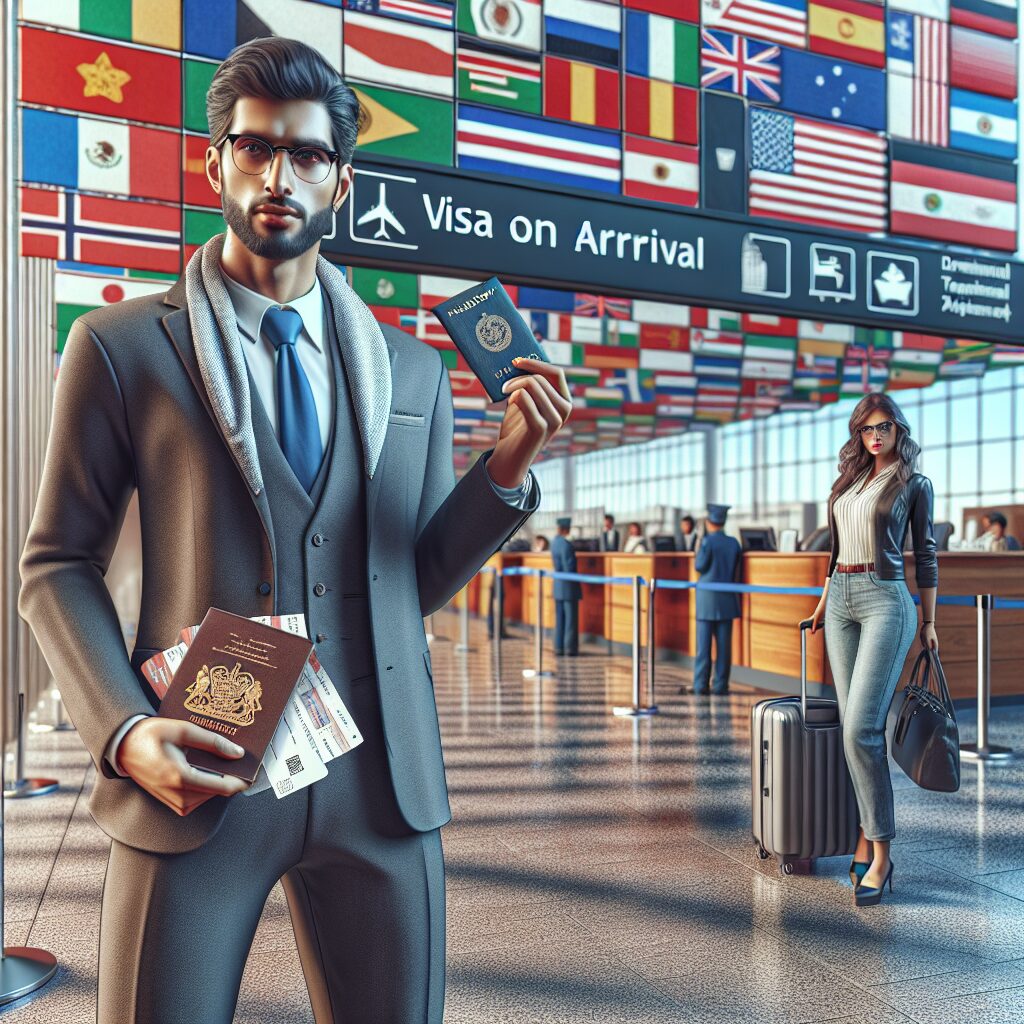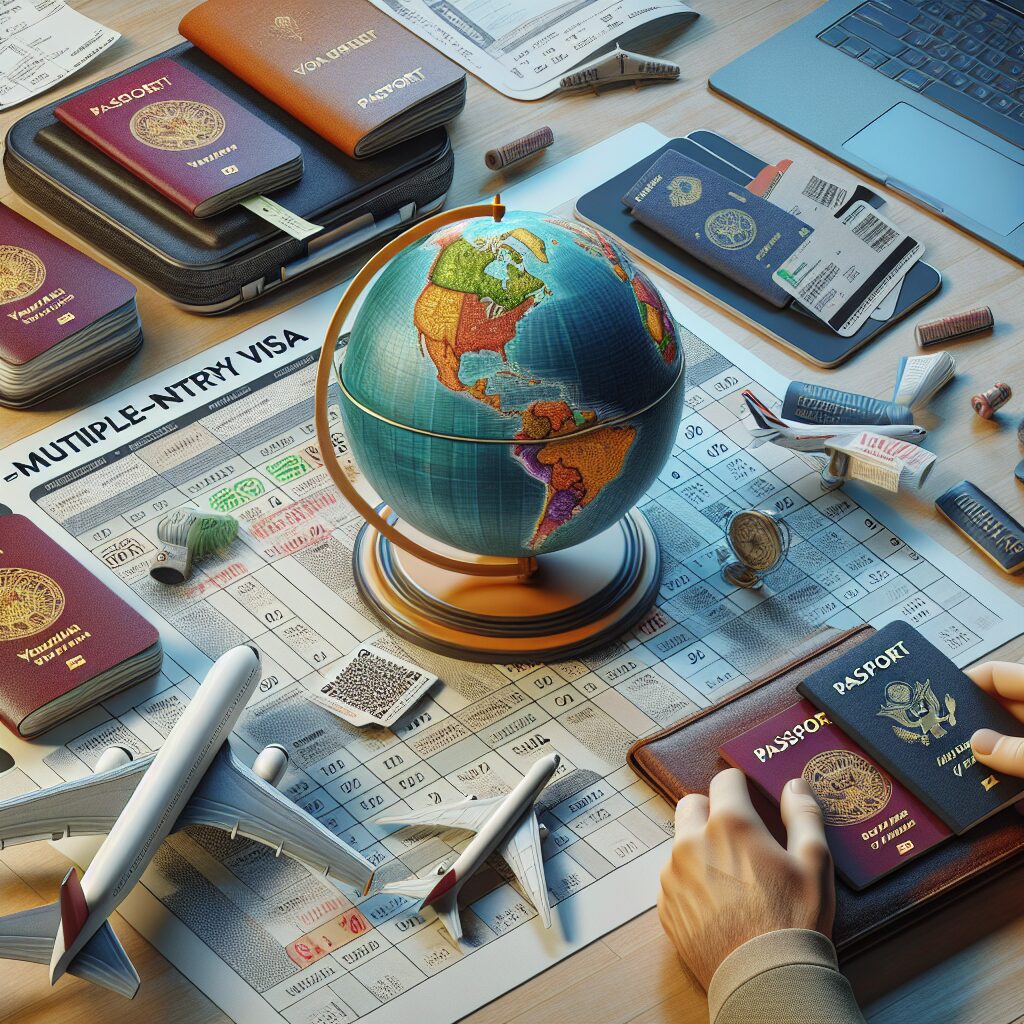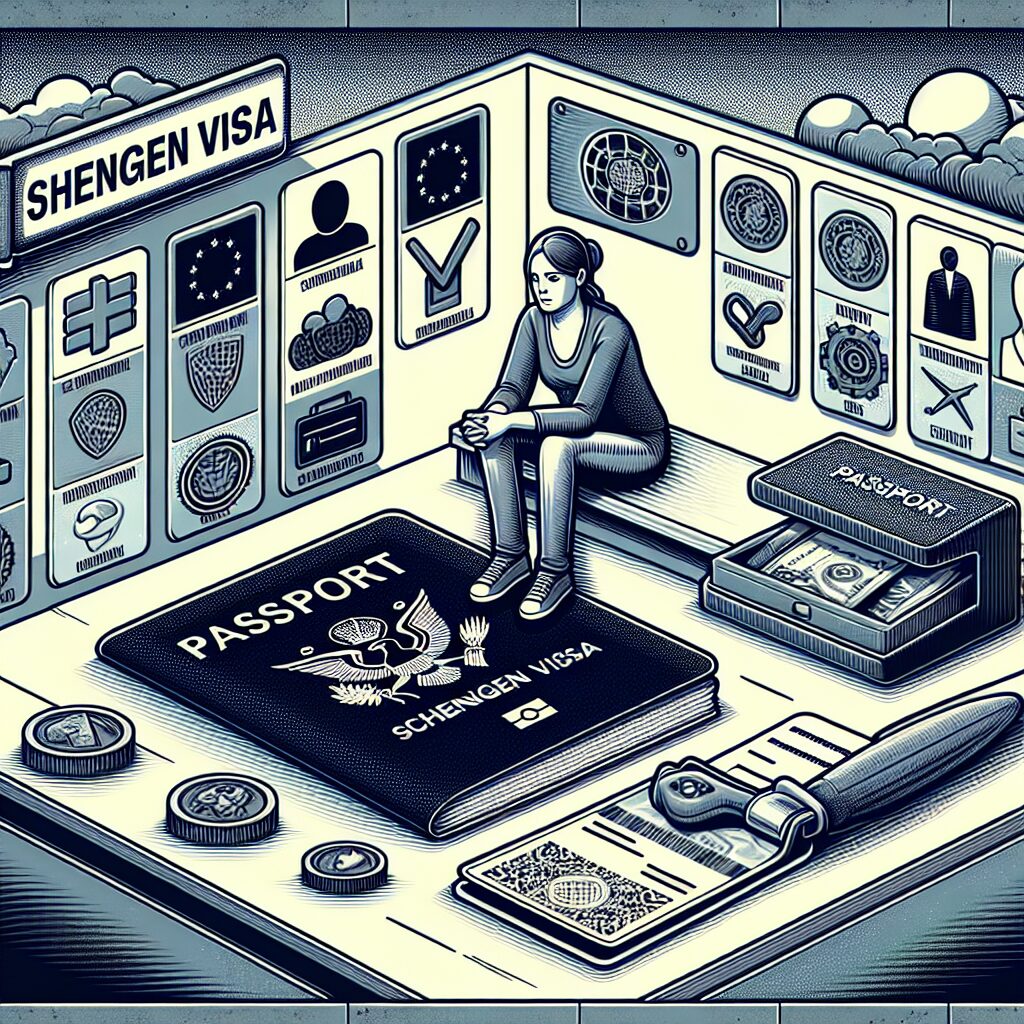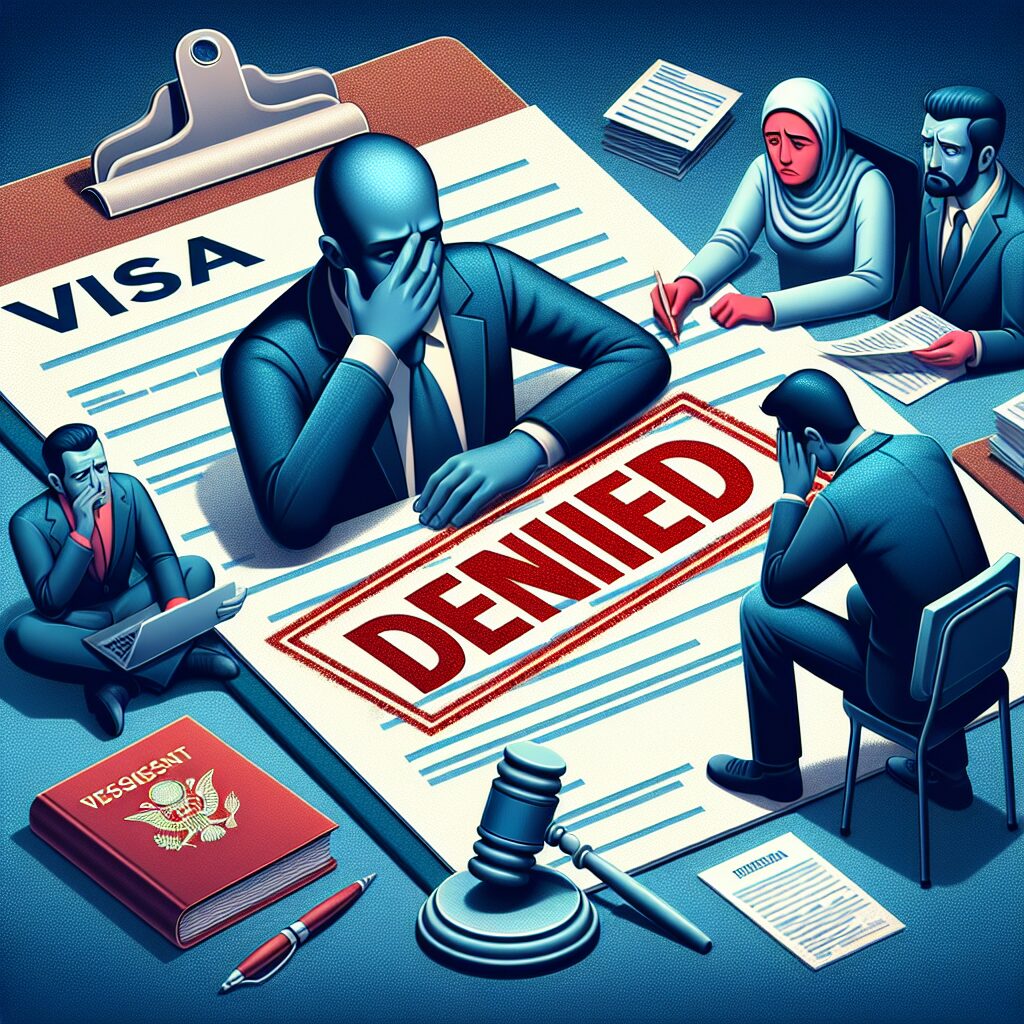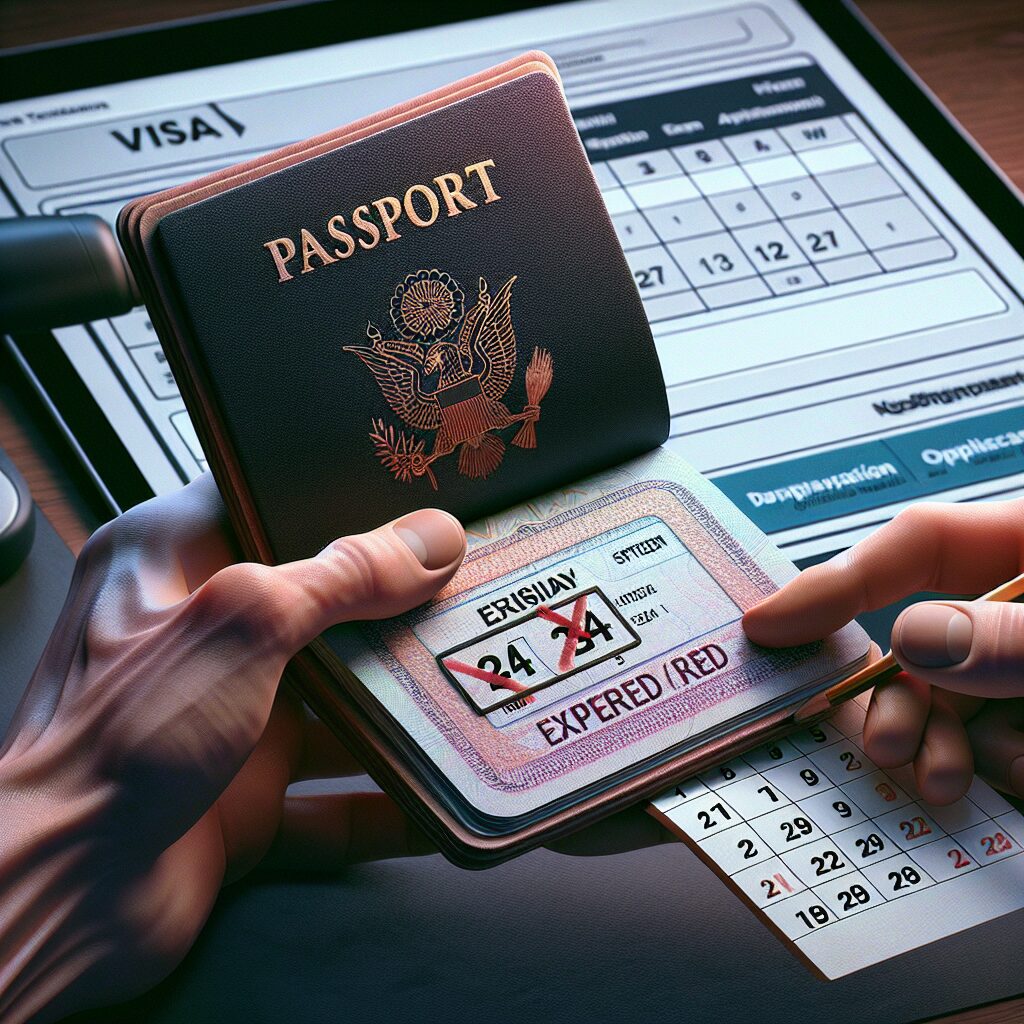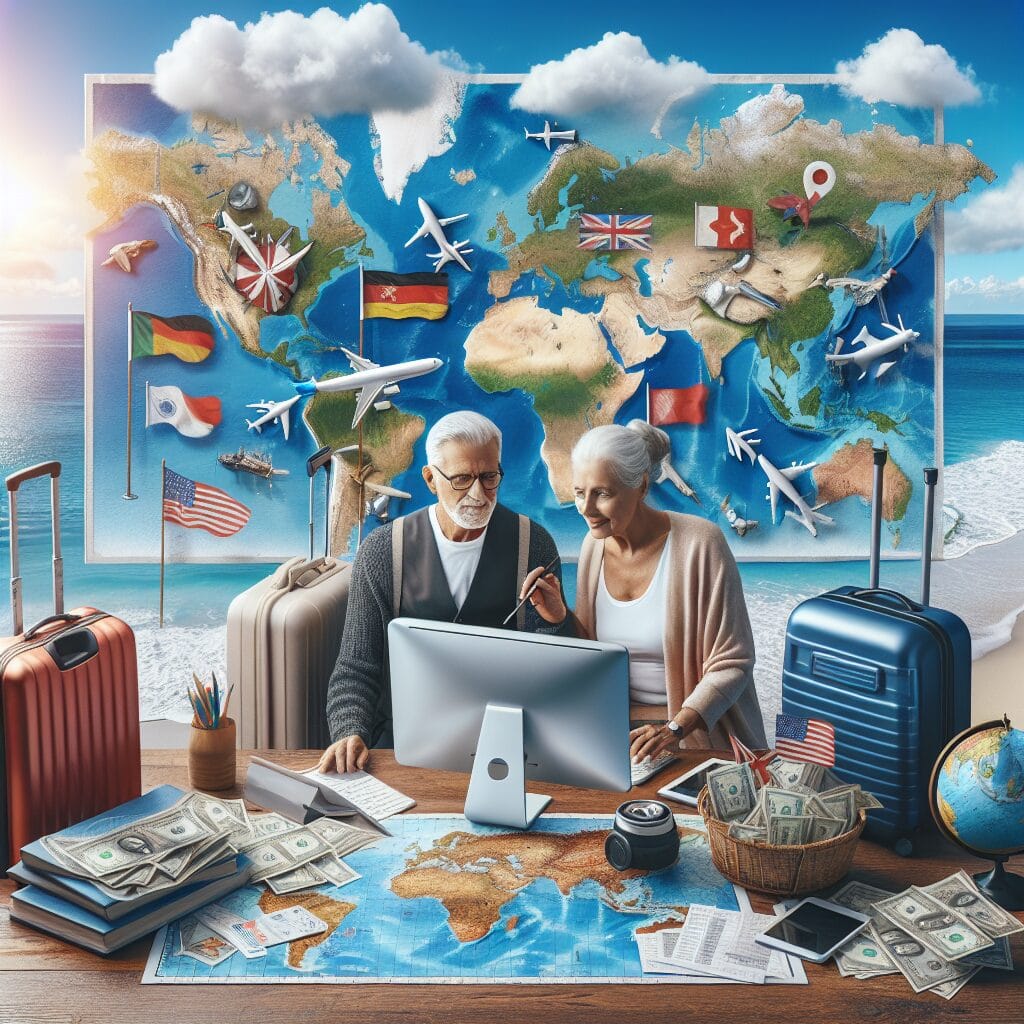Visa on Arrival: A Traveler’s Guide is an essential resource for globetrotters seeking seamless travel experiences. With the increasing popularity of international travel, visa policies have become a crucial aspect for travelers to consider. A visa on arrival is a convenient option that allows travelers to obtain a visa upon their arrival at the destination country’s airport or port of entry. This flexible arrangement eliminates the need for pre-application and enhances travel convenience.
One particular impact of visa on arrival is its positive effect on tourism. By facilitating easier access to a country, this visa option attracts more travelers and encourages tourism growth. Additionally, visa on arrival can also contribute to the economy of the destination country by generating revenue from visa fees. Moreover, this option distinguishes itself through its unique features, such as the freedom to choose the duration of stay, as well as the possibility of extending the visa while in the country.
In the next section of this article, we will explore the key takeaways regarding visa on arrival. We will delve into the process of obtaining a visa on arrival, the countries that offer this option, and some essential tips for a smooth experience. Whether you are an avid traveler or planning your first international trip, understanding the nuances of visa on arrival will undoubtedly enhance your travel experience. So, let’s continue our journey and discover the ins and outs of visa on arrival.
Key Takeaways
1. Visa on arrival is a convenient option for travelers who want to avoid the hassle of obtaining a visa in advance.
2. The availability and requirements of visa on arrival vary widely depending on the destination country, so it is crucial to research and plan accordingly.
3. It is important to check the validity of your passport and ensure that it meets the minimum validity requirements set by the country offering visa on arrival.
4. Prepare the necessary documents in advance, such as photographs and proof of onward travel, as these are often required when applying for visa on arrival.
5. Be prepared for potential long queues and waiting times at the airport, as the process of obtaining visa on arrival may take longer than expected.
What is Visa on Arrival and How Does It Work for Travelers?
Understanding Visa on Arrival
Visa on Arrival (VoA) is a convenient process that allows travelers to obtain a visa upon arrival at their destination country. Instead of obtaining a visa from an embassy or consulate before traveling, travelers can apply and receive their visa at the airport or border checkpoint upon arrival.
Where is Visa on Arrival Available?
Visa on Arrival is available in numerous countries around the world. Many popular tourist destinations offer this facility to make traveling easier for visitors. Some of the countries that provide Visa on Arrival include Thailand, Indonesia, Vietnam, Cambodia, and Laos.
Who is Eligible for Visa on Arrival?
Eligibility criteria for Visa on Arrival vary depending on the destination country. Generally, most countries offering VoA allow citizens of specific nations to avail this facility. It is essential to check with the embassy or consulate of the destination country to ensure eligibility for VoA.
The Application Process
The process of obtaining Visa on Arrival is relatively straightforward. Upon arrival at the airport or border checkpoint, travelers need to fill out an application form and provide the necessary documents, such as a passport with at least six months of validity, a recent passport-sized photograph, and proof of onward travel.
Validity and Duration
The validity and duration of Visa on Arrival differ from country to country. In most cases, the visa is valid for a specific period, such as 30 days, 60 days, or 90 days, depending on the traveler’s nationality and the country they are visiting. It is crucial to adhere to the visa’s validity and not overstay, as it may result in penalties or future visa complications.
Extension and Conversion
If travelers wish to extend their stay beyond the initial visa validity, it is often possible to apply for an extension. However, not all countries allow extensions for Visa on Arrival, and it is essential to check the specific regulations. Additionally, some visas may be convertible to other types, such as tourist visas to business visas, allowing travelers to engage in different activities during their stay.
Advantages of Visa on Arrival
Visa on Arrival offers several advantages for travelers. Firstly, it eliminates the need for pre-travel visa procedures, saving time and effort. It provides greater flexibility for those who may have spontaneous travel plans or changes in their itineraries. Additionally, VoA is often more cost-effective compared to obtaining visas through embassies or consulates.
Disadvantages to Consider
While Visa on Arrival offers convenience, there are a few disadvantages to consider. Some countries may have strict requirements or limitations on VoA, particularly regarding the purpose of travel or entry points. It is essential to thoroughly research and understand the specific regulations before relying on VoA. Additionally, long queues or delays at the airport or border checkpoint may occur, affecting the overall travel experience.
Conclusion
Visa on Arrival: A Traveler’s Guide
Understanding Visa on Arrival is crucial for travelers planning their trips. Knowing the availability, application process, eligibility criteria, and other essential details can ensure a hassle-free travel experience. Whether it’s for a holiday, business trip, or cultural exploration, Visa on Arrival provides a convenient option for obtaining entry permits without prior embassy visits.
1.
Ensure Eligibility: Check with the embassy or consulate of your destination country to confirm your eligibility for Visa on Arrival.
2.
Prepare Required Documents: Make sure to have a valid passport with at least six months of validity, a recent passport-sized photograph, and proof of onward travel.
3.
Learn the Application Process: Familiarize yourself with the process of filling out an application form and submitting it upon arrival at the airport or border checkpoint.
4.
Understand Validity and Duration: Research the specific validity and duration of the Visa on Arrival for your destination country to avoid any overstays or complications.
5.
Check Extension and Conversion Options: Find out if extensions or conversions are allowed for the Visa on Arrival, enabling you to extend your stay or engage in different activities.
6.
Weigh the Advantages and Disadvantages: Consider the pros and cons of Visa on Arrival, such as convenience, flexibility, and potential limitations, before opting for this visa option.
7.
Be Prepared for Potential Delays: Plan your travel accordingly, considering the possibility of queues or delays at the airport or border checkpoints when applying for Visa on Arrival.
Frequently Asked Questions
1. What is Visa on Arrival?
Visa on Arrival is a type of visa that allows travelers to obtain a visa upon arrival at their destination country, without having to apply in advance at an embassy or consulate.
2. Which countries offer Visa on Arrival?
Many countries around the world offer Visa on Arrival services. Some popular destinations include Thailand, Bali, Vietnam, Cambodia, and Nepal.
3. How long is the validity of a Visa on Arrival?
The validity of a Visa on Arrival varies depending on the destination country. It can range from a few days to several months. It’s important to check the specific requirements of the country you plan to visit.
4. Can I extend my Visa on Arrival?
In some cases, it is possible to extend a Visa on Arrival. This usually involves visiting the local immigration office of the destination country and providing the necessary documentation. Each country has its own rules and regulations regarding visa extensions.
5. Do I need to have a return ticket for Visa on Arrival?
Some countries may require travelers to have a return ticket when applying for a Visa on Arrival. It is advisable to check the entry requirements of your destination country prior to your trip to avoid any issues.
6. Can I use Visa on Arrival for business purposes?
Visa on Arrival is typically designed for tourists and may not be suitable for business purposes. It is recommended to obtain the appropriate business visa or consult with the embassy or consulate of the destination country beforehand.
7. Are there any restrictions on Visa on Arrival?
Visa on Arrival may have certain restrictions, such as limitations on the duration of stay, restrictions on employment, or restrictions on certain activities. It is important to familiarize yourself with the specific terms and conditions of the Visa on Arrival for your destination.
8. Can I apply for Visa on Arrival multiple times?
In most cases, Visa on Arrival can be applied for multiple times. However, there may be limitations on the frequency or total duration of stay. It is advisable to check the regulations of the destination country to avoid any issues or overstay penalties.
9. Is Visa on Arrival the same as an eVisa?
No, Visa on Arrival and eVisa are two different types of visas. While Visa on Arrival can be obtained upon arrival at the destination country, eVisa requires an online application before traveling. The eligibility, requirements, and fees for eVisa may also vary. Always check the specific visa options for your intended destination.
10. How much does Visa on Arrival cost?
The cost of Visa on Arrival varies depending on the destination country. It usually ranges from a nominal fee to a significant amount, depending on the type of visa and the duration of stay. Make sure to have the necessary funds in the appropriate currency to pay for the visa upon arrival.
Final Thoughts
Visa on Arrival can be a convenient option for travelers who prefer to avoid the hassle of applying for a visa in advance. However, it is crucial to research and understand the specific requirements and regulations of the destination country to ensure a smooth entry and stay. Always check for the latest updates and consult with the relevant authorities or embassy for accurate and up-to-date information. Remember, a well-prepared traveler is a confident traveler!
In conclusion, Visa on Arrival provides flexibility and convenience for many travelers, allowing them to explore new destinations with ease. Nevertheless, it is essential to plan ahead, be aware of the rules and limitations, and have the necessary documentation and funds ready. With proper preparation and understanding, Visa on Arrival can contribute to a memorable and hassle-free travel experience.


